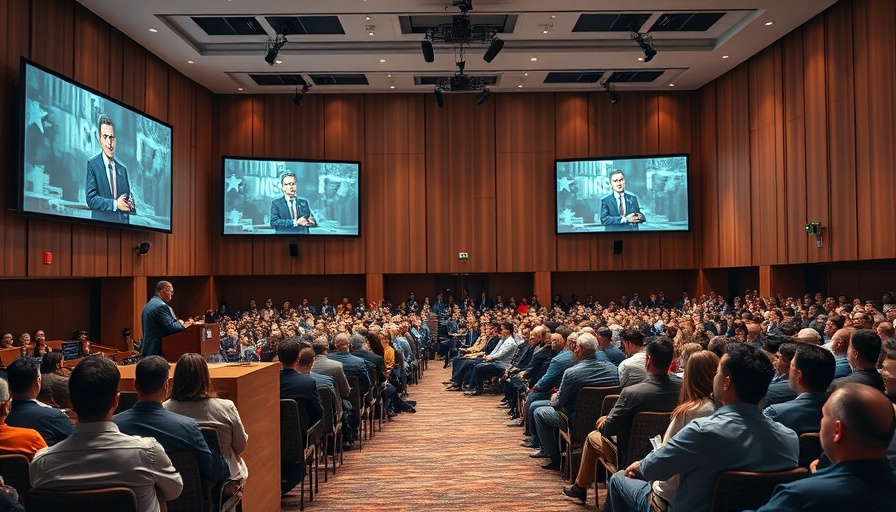
Addressing the Complexities of Crimes Against Humanity
Former International Criminal Court (ICC) Vice-President, Judge Dr. Sanji Mmasenono Monageng, highlighted the intricate challenges the ICC faces while prosecuting leaders and nations for crimes against humanity during her recent lecture at UNISA. Monageng emphasized that the pursuit of justice in ongoing conflict zones is particularly daunting. However, she affirmed that the ICC is diligently working towards holding these perpetrators accountable for their actions, marking a significant stride in international law enforcement systems.
The Need for Global Support
Judge Monageng called upon nations around the globe to support the ICC in its mission. "It is a very complicated matter," she stated, reflecting on the ICC's maturity as a legal body compared to historical tribunals like those established for Rwanda. This plea for solidarity resonates especially as nations face escalating atrocities that require collective international action. The call for backup and resources could truly equip the ICC to perform its crucial role effectively, particularly in contexts marked by instability.
Bridging the Accountability Gap
The need for international accountability mechanisms is further underscored by ongoing human rights violations globally, particularly seen in conflicts like the Syrian war. In November 2021, the International Bar Association reported on the urgent call for a global treaty to codify crimes against humanity, emphasizing that a definitive legal framework is necessary to enable accountability. There is a growing consensus among legal scholars and practitioners that such a treaty would help eliminate the current impunity for horrific acts committed against populations, including women and marginalized groups faced with gender-based violence.
Gender Justice and the Impact on Women in Conflict
As the ICC grapples with these complex legal challenges, the intersection of gender justice is becoming increasingly salient. Monageng’s discussion centered on the specific atrocities that women endure in war zones, invoking a broader narrative on gender-based violence as a crime against humanity. Addressing these issues requires more than just acknowledgment; it demands actionable frameworks that can be integrated into existing legal processes. Historical human rights failures, such as the inaction in Syria, underline the importance of establishing robust legal instruments that can confront and combat these violations systematically.
International Law as a Living Framework
The principle of ongoing development in international law is vital as it has often been reactive rather than proactive. Innovations like the proposed treaty for crimes against humanity aim to establish clearer definitions and enforceability which can close existing gaps in accountability. The treaty’s ongoing negotiation process, currently taking shape within the UN’s Sixth Committee, represents a potential watershed moment in international law. If resolved favorably, it could offer nations the framework needed to prosecute crimes effectively within their domestic legal systems, thereby reinforcing the integrity of international jurisprudence.
Anticipating Global Shifts Towards Consolidated Justice
As we look toward future elections, including the 2024 general elections and beyond, there is a burgeoning recognition of the need for political realignment that emphasizes accountability and justice. The ICC’s work embodies this call for action underpinned by a government commitment to political and social reforms. With rising international concern over systemic abuses linked to past regimes and their successors, such as those associated with Jacob Zuma, the ICC and like-minded global entities must seize this moment to advocate for legislative reforms that prioritize human rights over political expediency.
A Call to Action for International Cooperation
Dr. Monageng’s lecture serves not only as a stark reminder of the ICC’s challenges but also an urgent call for unity among nations to build a solid foundation towards accountability. It is imperative for countries like South Africa, with its own significant political history, to contribute to this dialogue. The pressing need for electoral reform, particularly in light of the political landscape shaped by parties such as the ANC and DA, highlights the intersection of domestic policies and international justice efforts.
At the heart of this discussion lies a broader societal responsibility to advocate for reforms that elevate human rights and establish accountability as cornerstones of governance across the globe. By standing united, nations can pave the way for a brighter future where atrocity crimes are not merely documented but systematically prosecuted, ensuring justice for all.
 Add Row
Add Row  Add
Add 




Write A Comment